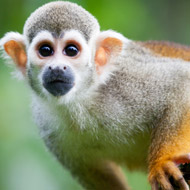Fate of seized wildlife in question

The statistics highlight a major discrepancy in the data, given the estimated 10 billion dollar black market trade of global wildlife, each year.
Sixty-four thousand confiscated wild animals are unaccounted for, according to a report by the University of Oxford Wildlife Conservation Research Unit and World Animal Protection.
The data, collected between 2010 and 2014, is limited due to the absence of reports from countries affiliated with the Convention of International Trade in Endangered Species of Flora and Fauna (CITES). One in three associated countries offered information, with two out of three countries not reporting any live wildlife seizures. The statistics highlight a major discrepancy in the data, given the estimated 10 billion dollar black market trade of global wildlife, each year.
A lack of data on the fate of seized wildlife also calls into question the welfare and survival rates of these animals. CITES offer guidelines on whether to keep animals in captivity, release them back to the wild or euthanise them, based on their welfare needs and conservation status. However, these guidelines act as recommendations rather than rules and, subsequently, there are no recorded outcomes for the seizures.
Professor David Macdonald, senior researcher for the study, at the University of Oxford, said: “We fear this staggering number is just the tip of the iceberg. Only a relatively small proportion of wild animals involved with illegal trade are thought to be intercepted by enforcement agencies – confiscation records were completely missing for 70 per cent of countries Party to CITES. Given the rapidly growing global trends in illegal wildlife trade activity, it is highly unlikely that no live wildlife seizures were made on their borders.
“The records that were provided show that around 20 per cent of all live wild animals reported as seized are currently considered to be threatened by extinction. We strongly recommend that the CITES trade database should include information on the fate of all live wild animal seizures, so we know what happens to these animals, and we can reduce the risk of them re-entering the illegal wildlife trade.”
Dr Neil D’Cruze, lead researcher for the study at World Animal Protection, said: “The illegal wildlife trade is a big, complex and dirty business. National authorities play a key role, facing some tough choices when they seize animals – whether they release them in the wild, place them in care in captivity or euthanise them.
“Improved data recording is critical to knowing what happens to each animal, and can help in looking at the challenges and issues enforcement agencies face in managing animals after seizure. Without this transparency, there's a real possibility that endangered species may be put back into the hands of the same criminals whom they were taken from. We need to be able to account for these wild animals.
“If we’re really serious about protecting wildlife, action needs to be taken at all levels. It’s unfathomable that 70 per cent of countries recorded no seizures when we know a global, multi-billion [sic] dollar wildlife trafficking industry is flourishing.”



 The veterinary mental health charity Vetlife is inviting the veterinary community to join it for a sponsored cold-water dip.
The veterinary mental health charity Vetlife is inviting the veterinary community to join it for a sponsored cold-water dip.